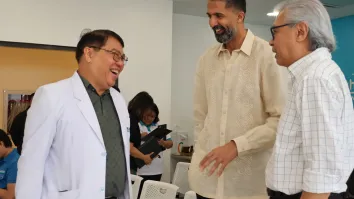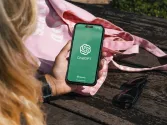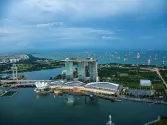New Life Therapeutics CEO on addressing medical needs by investing in biopharma
Aggarwal believes that the Sonnet BioTherapeutics' diabetes neuropathy treatment will be a gamechanger.
In August 2020, Singapore-based New Life Therapeutics executed a Letter of Intent for half a million dollars to NASDAQ-listed biopharmaceutical company Sonnet BioTherapeutics. The deal was part of a negotiation for an agreement to license its assets for diabetic peripheral neuropathy and chemotherapy-induced peripheral neuropathy.
There is also a potential for up to $40m in milestone payments and 30% royalty on commercial sales. The territories would include Singapore, Malaysia, Indonesia, Thailand, Philippines, Cambodia, Brunei, Vietnam, Myanmar and Laos.
We recently caught up with New Life Therapeutics’ CEO, Rakesh Aggarwal to discuss what this means for diabetic patients and the healthcare industry in Singapore and the region.
Given your background various industries such as banking. What prompted you to enter into bio pharmaceuticals?
I have been involved in the healthcare sector since 2001 when a joint venture with Johns Hopkins International, Baltimore (US) was established in pursuit of Laboratory Medicine in Asia. Subsequently, I have promoted other healthcare related businesses including diagnostic labs in Malaysia and a genomics based digital platform in Singapore in 2018 known as GeneJunction. I have seen at close quarters what damage “lifestyle” disease diabetes can inflict on unsuspecting people in the ordinary course of their life.
What do you hope to achieve with NLT and how do you aim to accomplish these goals, given that you are a new entrant in this field?
New Life Therapeutics (NLT) has been founded to address critical unmet medical need in the ASEAN region in areas of neuropathy related to diabetes (DPN) and chemotherapy (CIPN). Low Dose Interleukin-6 (IL-6) is the basis for this new treatment and the drug proposed will be first in its class as other than pain killers that attempt to address the symptoms not the cause, there is no treatment currently available to treat DPN and CIPN. We look forward to joining forces with Singapore and other ASEAN countries to fight the war on diabetes as an important first step.
Clinical trials can take years before drugs reach patients, with no guarantees of success. What made you so certain of Sonnet that prompted you to place a half-million initial payment for an LOI?
Low Dose IL-6 has been undergoing research for over two decades now and has proven to be safe and effective based on animal and human trials conducted by a large multinational pharmaceutical company in Israel, Switzerland, UK, Japan and USA. Sonnet BioTherapeutics Inc. based in Princeton (US) acquired the rights to this product from Relief Therapeutics SA, Geneva, Switzerland.
In collaboration with Sonnet, NLT plans to undertake further trials in Singapore and Malaysia and subject to regulatory approvals, expects to launch the drug around 2024. After extensive discussions with the Sonnet team, the scientists involved in these IL-6 trials and independent market analysis, NLT Co-Founder Dr Rachna Kairon, and I were convinced of the multi-billion US dollar business potential for this Clinical Stage asset for the ASEAN region that is home to over 30 million patients suffering from diabetes.
What is the significance of the SON-80 and SON-81 assets in diabetic neuropathy treatment compared to other treatments?
Currently, there are no disease modifying treatments available and the standard of care for neuropathy include pain relievers such as opioids that attempt to address the symptoms of diabetic neuropathies and not the cause.
Their efficacy is limited and they are associated with a high degree of side effects. Both DPN and CIPN are debilitating conditions that manifest as pain, numbness and tingling in the extremities.
Low dose IL-6 has demonstrated neurorestorative properties that allow nerve regrowth, reinstatement of physiological nerve conductance and restoration of nerve fiber density. We believe that low dose IL-6 could provide therapeutic benefit to both DPN and CIPN patients through its neuro protective, neuro growth and pain reduction mechanisms of action.
When do you expect availability of this diabetic neuropathy treatment and where in ASEAN would you expect to be your primary markets?
In the ASEAN region, the largest markets for DPN are Indonesia, Thailand, Philippines, Vietnam, Malaysia, Myanmar and Singapore. As commercial launch in each market follows regulatory approval, actual availability timeline will be dependent on completing those processes.
With a potential for up to $40m in milestone payments for these drugs, what are the milestones and who is funding this?
As is normal with pharma licensing industry, critical milestones are linked to successful completion of various phases of the trials and the case with NLT is no different. In addition to funding by the founders and angel investors, we expect to raise funds from a variety of sources including VC funds and the IPO market upon successful completion of Phase 2 trials.
Given Covid-19 and how resources have had to be reallocated and reprioritied, how do you see the situation impacting treatment delivery timelines?
Undoubtedly the Covid-19 situation has caused dislocations globally with most Governments and pharmaceutical companies working on vaccines and treatments to deal with the pandemic as the highest priority. NLT plans to start Phase 1b / 2a trials first half of 2021, and expects to deliver the drugs in 2024 / 2025.



















 Advertise
Advertise






